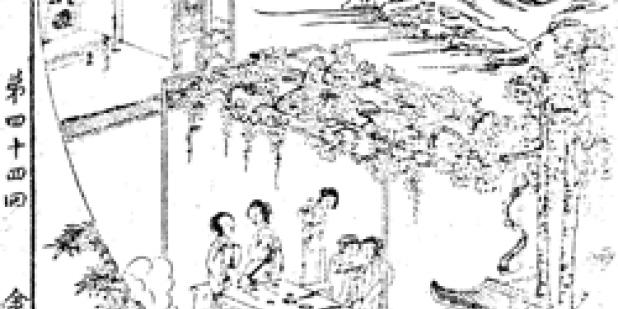Happy Lunar New Year from the USC US-China Institute!
How to Commit to the Traumatic Past: Knowledge and Book Space in Ding Yaokang’s Sequel to "Plum in the Golden Vase"
The UCLA Center for Chinese Studies presents Dr. Xiaoqiao Ling, speaking about Ding Yaokang's novel sequel to Xu Jin Ping Mei 續金瓶梅 (A sequel to Plum in a Golden Vase).
Where

Ding Yaokang 丁耀亢 (1599–1669), in his sequel to Xu Jin Ping Mei 續金瓶梅 (A sequel to Plum in a Golden Vase), brings the main characters back to life in their reincarnations to experience the Jürchen invasion of China, a temporal reimplacement that is a thin veil thrown over the Manchu conquest of China in mid seventeenth century. Assuming the moral stance of preaching to sentient beings in a tumultuous world, the author-narrator evokes knowledge of gongguo ge 功過格 (ledgers of merit and demerit), Buddhist scriptures, Taoist Canon, and biographies in official history to explore ways of positioning the self in a world ravaged by war, and, in the mean time, to reconfigure traumatic memories of the Manchu conquest. In addition, eyebrow commentary at the upper margin of the book pages open up discursive interpretive moments in which an amused reader points out how Ximen Qing, in his second life, lost his claim to self-?identity by forgetting his past, while Jinlian, by adhering to her lustful nature even in her reincarnation, receives Buddhist salvation. The book pages have therefore provided a virtual space where the commentator and the author-?narrator engage each other in dialogic imagination to contemplate, on a symbolic level, the meaning of remembrance and the imperative to commit to the traumatic past, while keeping a comfortable distance from the flawed fictional characters.
Xiaoqiao Ling received her M.A. from University of Washington and Ph.D. from Harvard University. Her main field of interest is late imperial Chinese literature with a focus on performance texts and vernacular fiction. She is currently working on a book manuscript that explores traumatic memories and their transmission across generations during the Manchu conquest of China in the seventeenth century.
Featured Articles
We note the passing of many prominent individuals who played some role in U.S.-China affairs, whether in politics, economics or in helping people in one place understand the other.
Events
Ying Zhu looks at new developments for Chinese and global streaming services.
David Zweig examines China's talent recruitment efforts, particularly towards those scientists and engineers who left China for further study. U.S. universities, labs and companies have long brought in talent from China. Are such people still welcome?






